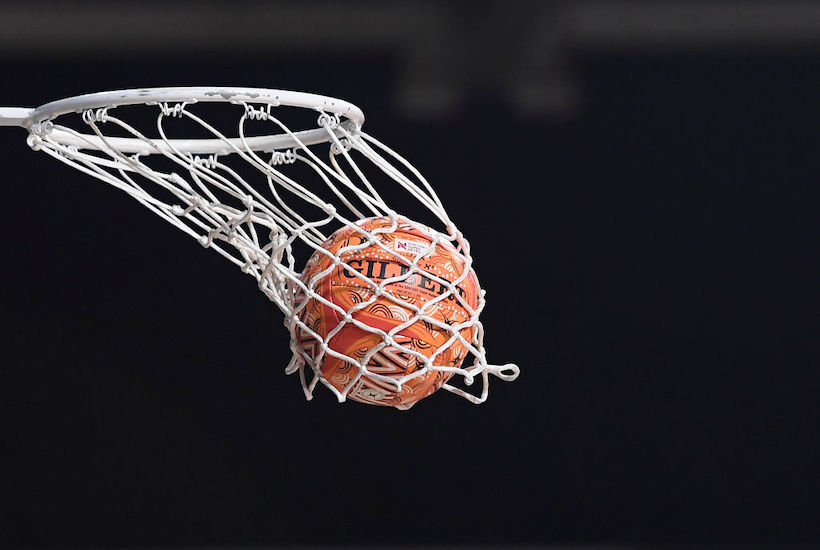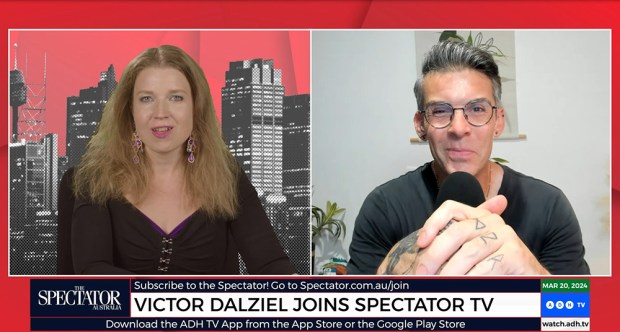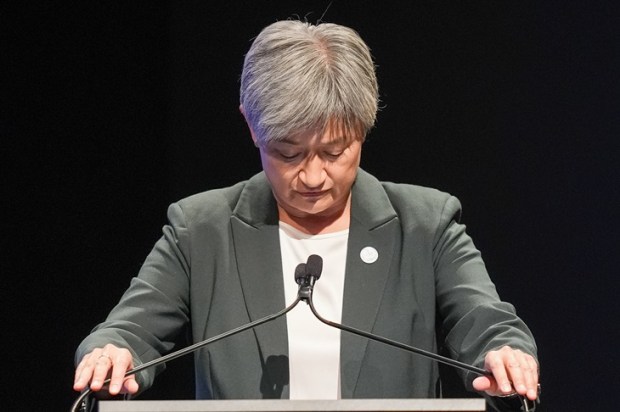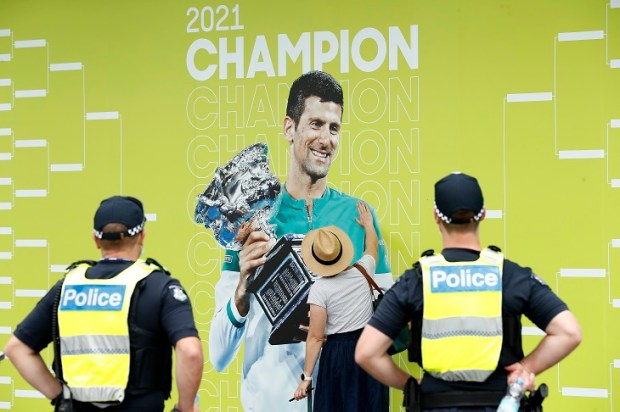Netball Australia decided to hold an Indigenous Round last weekend to celebrate diversity and inclusion. What could possibly go wrong?
Games were opened with an Acknowledgement of Country. A didgeridoo was played before the start of each game. Match balls featured indigenous artwork; as did player uniforms.
So far, so woke.
There was even one indigenous player. The problem was that she sat on the bench — for the entire game.
And faster than you can say “cultural awareness”, a weekend designed to show off the sport’s woke credentials became prima facie evidence of the sport’s systemic racism
Social media cried foul. Netball Australia were “racist trash”. The much-publicised Indigenous Round was “a debacle” and a “kick in the guts” to the Indigenous community. Aboriginal and Torres Strait Islanders had been “disrespected”.
Besieged Queensland Firebirds coach Roselee Jencke issued a public apology, explaining that her decision to keep indigenous wing attack Jemma Mi Mi on the bench was one of strategy, not of bigotry.
She had naively approached her team’s Super Netball game against minor premiers Melbourne like any other –- with a view to win. And they did win.
But this wasn’t a game like any other. This was the Indigenous Round. And during the Indigenous Round, you play the Indigenous woman whether she helps you win the game or not.
“The decision not to put Jemma on the court was the right one from a game-strategy perspective,” Jencke said. “However we misread community expectations.”
Jencke had been under pressure to get results after her team finished bottom of the table in 2019. She was coaching to win.
Netball Australia had been under pressure to get results after more than 20 years without an Indigenous player in the national team. They were playing to signal inclusion.
Caught between the coach’s desire to win and the code’s desire to send a culturally appropriate message was Jemma Mi Mi. She was playing to establish herself as an elite netballer.
Like I said, what could possibly go wrong? I mean, apart from the public humiliation of Jemma Mi Mi and vicious accusations of racism against her coach and teammates?
Sharon Finnan-White, the last Indigenous netballer to play for Australia, told the ABC:
There needed to be a bit more cultural sensitivity around the fact that Indigenous Round is really special for our people and Jemma should have been able to be a part of that win.
She should have had a chance to hit the court. They can’t make finals. They weren’t even in contention.
What was supposed to be a wonderful celebration of our culture — her culture — turned into something completely sour.
Unintentionally, those comments highlighted the hypocrisy of both Netball Australia and of Indigenous sporting activists.
Netball Australia can hardly use their sole indigenous player to promote its Indigenous Round only to then have her sit on the sidelines watching all the non-Indigenous people play.
Netball Australia set Jemma Mi Mi up to look like a fool.
But by the same token (pun definitely intended), Indigenous activists can hardly demand “respect” while insisting that one of “theirs” gets court time at the elite level because skin colour and because ‘the team wasn’t going to make the finals anyway’.
Ignoring form and tactics in order to give an Indigenous netballer a few minutes of token game time is hardly a way to generate respect for Indigenous players.
Journalist Nancia Guivarra wrote: “An Indigenous Round without Indigenous players on the court isn’t an ‘Indigenous Round’. It’s tokenism.”
She’s right.
But it’s equally true that putting Indigenous players on the court because it’s Indigenous Round is also tokenism.
Jemma Mi Mi told media prior to Sunday’s game: “I’ve never played a netball game in an Indigenous dress before so it’s going to be really exciting to step out on court at a home game to represent both the Firebirds and Indigenous community.”
When game time came, the 24-year-old was all dressed up with nowhere to go.
It wasn’t Mi Mi’s fault. She was put in that position by virtue signalling sports administrators and by race obsessed activists who are as bad as each other.
And what of Jemma’s teammates?
Shamefully, they were publicly accused of racism for not subbing themselves out of the game so that Mi Mi could get on the court.
Aboriginal scholar and Western Sydney University lecturer Robyn Oxley told SBS: “It really questions why white players do not remove themselves, even when they are cramping. These players would rather risk further injury than see an Indigenous person play in a round dedicated to promoting awareness of Aboriginal culture.”
One has to wonder if Robyn Oxley watches any sport. Players want to play and are loath to sub themselves off – cramp or not.
And if a white player had taken herself off to get Mi Mi on the court, the goal attack would likely have been called a bigot for not swapping positions so that Mi Mi could score the goals.
Super Netball CEO Chris Symington responded to the controversy by saying that he understood calls for the Indigenous round to be scrapped.
But then, reverting to robotic woke-speak, insisted: “Indigenous Round provides an opportunity to celebrate Aboriginal and Torres Strait Islander culture and acknowledge the contribution that many Aboriginal and Torres Strait Islanders play across the entire netball system and we plan for this round to continue in future years.”
The reaction to last weekend made one thing certain — the Indigenous Round is not a celebration of elite sport or of elite athletes.
If you want to see that, save your money for the following week, when social justice warriors are sidelined to create a safe space for professional coaches and athletes playing to win.
Got something to add? Join the discussion and comment below.
Get 10 issues for just $10
Subscribe to The Spectator Australia today for the next 10 magazine issues, plus full online access, for just $10.


























Comments
Don't miss out
Join the conversation with other Spectator Australia readers. Subscribe to leave a comment.
SUBSCRIBEAlready a subscriber? Log in